Parsa Mahmoudieh
Evaluating Gemini in an arena for learning
May 30, 2025
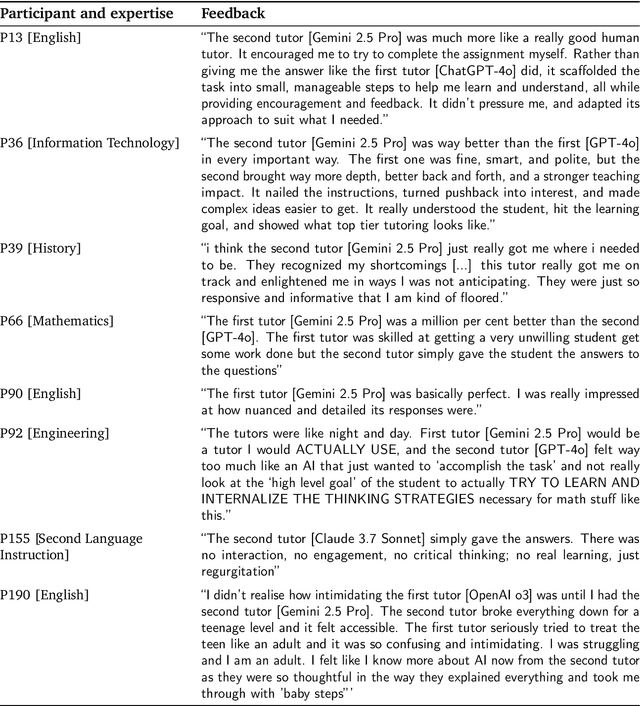

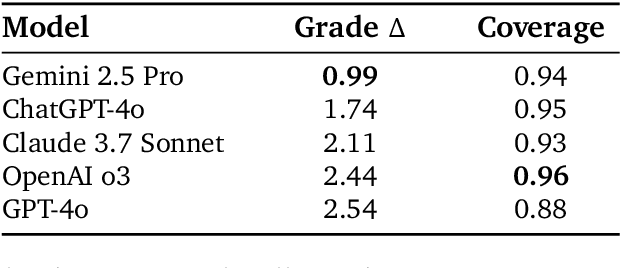
Abstract:Artificial intelligence (AI) is poised to transform education, but the research community lacks a robust, general benchmark to evaluate AI models for learning. To assess state-of-the-art support for educational use cases, we ran an "arena for learning" where educators and pedagogy experts conduct blind, head-to-head, multi-turn comparisons of leading AI models. In particular, $N = 189$ educators drew from their experience to role-play realistic learning use cases, interacting with two models sequentially, after which $N = 206$ experts judged which model better supported the user's learning goals. The arena evaluated a slate of state-of-the-art models: Gemini 2.5 Pro, Claude 3.7 Sonnet, GPT-4o, and OpenAI o3. Excluding ties, experts preferred Gemini 2.5 Pro in 73.2% of these match-ups -- ranking it first overall in the arena. Gemini 2.5 Pro also demonstrated markedly higher performance across key principles of good pedagogy. Altogether, these results position Gemini 2.5 Pro as a leading model for learning.
LearnLM: Improving Gemini for Learning
Dec 21, 2024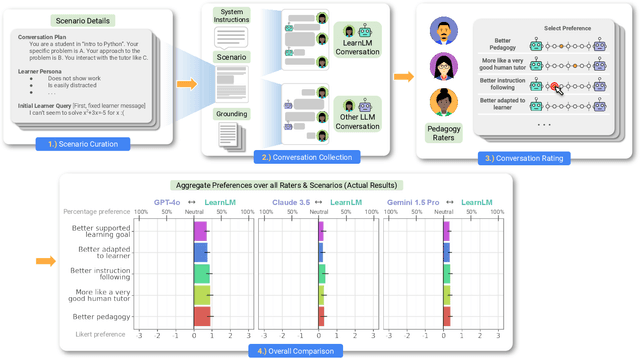
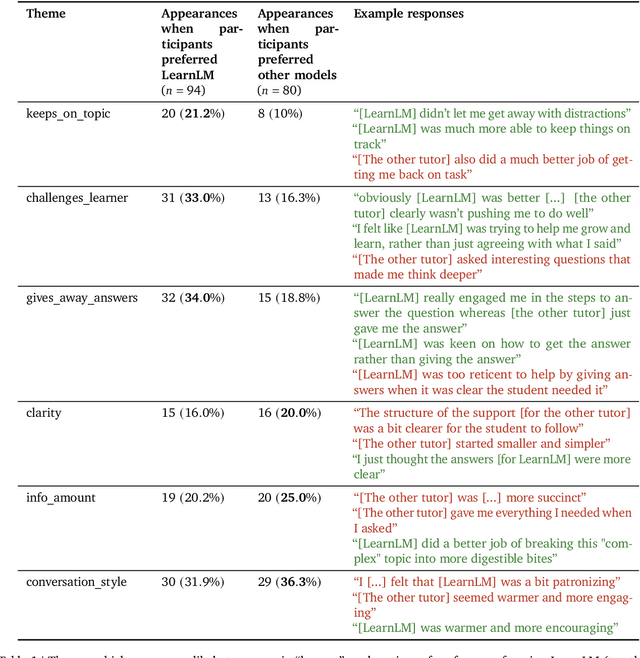
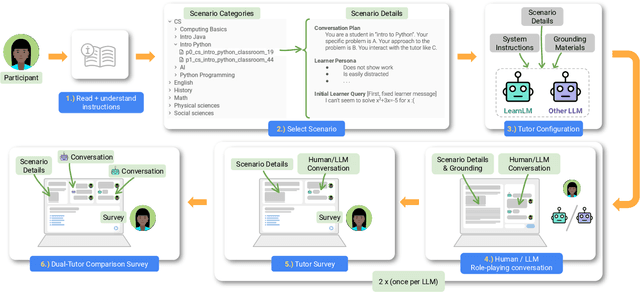
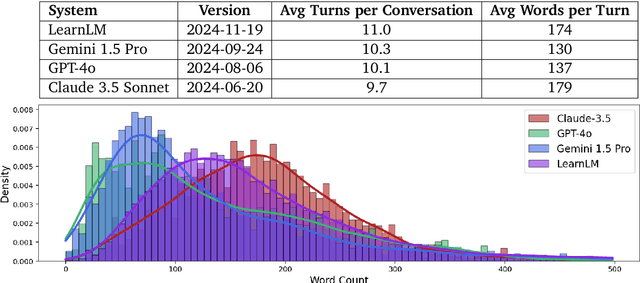
Abstract:Today's generative AI systems are tuned to present information by default rather than engage users in service of learning as a human tutor would. To address the wide range of potential education use cases for these systems, we reframe the challenge of injecting pedagogical behavior as one of \textit{pedagogical instruction following}, where training and evaluation examples include system-level instructions describing the specific pedagogy attributes present or desired in subsequent model turns. This framing avoids committing our models to any particular definition of pedagogy, and instead allows teachers or developers to specify desired model behavior. It also clears a path to improving Gemini models for learning -- by enabling the addition of our pedagogical data to post-training mixtures -- alongside their rapidly expanding set of capabilities. Both represent important changes from our initial tech report. We show how training with pedagogical instruction following produces a LearnLM model (available on Google AI Studio) that is preferred substantially by expert raters across a diverse set of learning scenarios, with average preference strengths of 31\% over GPT-4o, 11\% over Claude 3.5, and 13\% over the Gemini 1.5 Pro model LearnLM was based on.
Zero-Shot Visual Imitation
Apr 23, 2018



Abstract:The current dominant paradigm for imitation learning relies on strong supervision of expert actions to learn both 'what' and 'how' to imitate. We pursue an alternative paradigm wherein an agent first explores the world without any expert supervision and then distills its experience into a goal-conditioned skill policy with a novel forward consistency loss. In our framework, the role of the expert is only to communicate the goals (i.e., what to imitate) during inference. The learned policy is then employed to mimic the expert (i.e., how to imitate) after seeing just a sequence of images demonstrating the desired task. Our method is 'zero-shot' in the sense that the agent never has access to expert actions during training or for the task demonstration at inference. We evaluate our zero-shot imitator in two real-world settings: complex rope manipulation with a Baxter robot and navigation in previously unseen office environments with a TurtleBot. Through further experiments in VizDoom simulation, we provide evidence that better mechanisms for exploration lead to learning a more capable policy which in turn improves end task performance. Videos, models, and more details are available at https://pathak22.github.io/zeroshot-imitation/
Loss is its own Reward: Self-Supervision for Reinforcement Learning
Mar 09, 2017



Abstract:Reinforcement learning optimizes policies for expected cumulative reward. Need the supervision be so narrow? Reward is delayed and sparse for many tasks, making it a difficult and impoverished signal for end-to-end optimization. To augment reward, we consider a range of self-supervised tasks that incorporate states, actions, and successors to provide auxiliary losses. These losses offer ubiquitous and instantaneous supervision for representation learning even in the absence of reward. While current results show that learning from reward alone is feasible, pure reinforcement learning methods are constrained by computational and data efficiency issues that can be remedied by auxiliary losses. Self-supervised pre-training and joint optimization improve the data efficiency and policy returns of end-to-end reinforcement learning.
 Add to Chrome
Add to Chrome Add to Firefox
Add to Firefox Add to Edge
Add to Edge